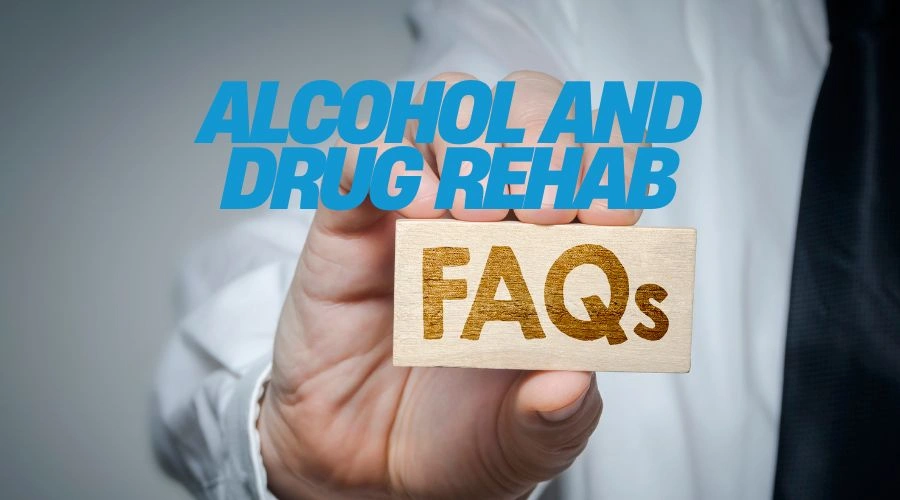Helping a Loved One Seek Appropriate Alcohol Treatment
Alcohol use disorder is the most common substance use disorder in the United States. Although it’s legal, experts agree that alcohol is a dangerous drug. Similarly, problematic drinking habits tend to affect not only the person themselves but those around them.
Some people with alcohol problems seek treatment on their own. However, many do not. In some cases, an affected person may acknowledge the presence of alcoholism or serious alcohol abuse. In others, they may be in denial about their addiction and become uncaring about others they care about.
If your spouse is in denial about the effects of their drinking, what can you do? Icarus Wellness and Recovery is here to help. With extensive experience in the addiction recovery space, we understand what having an alcoholic spouse is like.
Our team is here to guide people facing substance abuse and their loved ones through recovery and healing. So, let’s talk about what to do if you’re the spouse of someone who has or might have a drinking problem.
Get Effective Detox and Rehab Options at Icarus
Signs Your Spouse Has Alcohol Use Disorder
First, how can you tell if you are living alongside a spouse with alcohol use disorder? Looking at the signs of alcohol use disorder (AUD), which is the diagnostic term for an addiction to alcohol, can help. There are 11 main signs of the condition:
- Spending a significant amount of time focused on obtaining alcohol, drinking, or recovering from the effects of consuming alcohol.
- Recurring use of alcohol while driving or doing other risky things (e.g., operating heavy machinery).
- Consuming alcohol at a level that they know is harming their physical or mental health.
- Experiencing strong cravings for alcohol when they are not actively drinking.
- Rising levels of alcohol use over time (which reflect rising alcohol tolerance).
- Maintaining a level of drinking that harms their relationship with you or others.
- Regularly drinking in larger amounts or more often than they meant to.
- Trying to halt or reduce their alcohol use multiple times without success.
- Going into withdrawal if they stop drinking or cut back on drinking.
- Giving up once-favored activities so they have more time to drink.
- Having problems at work, at home, or in school as a result of alcohol use.
Even just one of these signs can raise concern. While these symptoms can help a provider diagnose AUD, they do not even begin to reflect the devastating consequences alcohol abuse can have on a person or their loved ones.
Choosing Detox for Alcohol Abuse
An effective treatment process for alcoholism takes place in stages. The first step is to quit drinking. People affected by alcoholism typically go through withdrawal when alcohol use ends. Even in a best-case scenario, alcohol withdrawal can be extremely uncomfortable and distressing. In a worst-case scenario, it can be dangerous.
For these reasons, supervised detox is universally recommended for people withdrawing from alcohol. Detox provides two essential forms of support:
- Medication to help your spouse cope with their withdrawal symptoms.
- General medical oversight that helps safeguard their health.
Successful detox is followed by enrollment in primary alcohol treatment. That’s where Icarus Wellness and Recovery comes in.
Alcohol Addiction Treatment
While medical detox is critical for people at risk of potentially serious withdrawal symptoms, treatment addresses the underlying causes. Inpatient and outpatient alcohol rehab programs involve regular psychotherapy sessions that provide coping strategies, guidance on healthy daily routines, and relapse prevention skills.
Medication can also be involved in treatment for alcohol problems. These medications help people avoid returning to problematic drinking habits. Alongside therapy, they can be the right choice for some people in addiction recovery.
Additionally, many people find 12-step groups, like Alcoholics Anonymous (AA), valuable in getting and staying sober. AA is a free resource that has been helping people recover for over 80 years.
We provide individualized, evidence-based treatment for alcohol dependency. Our center includes loved ones in the treatment process whenever possible. When partners and family members come in for therapy sessions, it is often helpful for everyone involved.
How to Get Help for an Alcoholic Loved One
You have several options for getting help for an alcoholic loved one. Many people start by encouraging a spouse to talk to their primary doctor. Today, most general practitioners know how to look for alcohol use disorder. They also have some knowledge of available treatment resources.
You may also want to talk to addiction specialists working at an alcohol treatment center. These specialists are alcoholism experts. They understand the factors that support the development of addiction. They also know how to give detailed advice on the best options for an effective alcohol recovery.
There are also other potential sources of useful information on addiction treatment. For example, you may want to consult specialists not working at a recovery center. You may also inquire about available resources with your insurance provider.
Get Accredited Treatment Programs at Icarus
Ways to Present Rehab to a Loved One in Denial
Denial is not an uncommon issue in people affected by alcoholism. This is true for a number of reasons. First, many people feel stigmatized by their condition and fear being labeled as an alcoholic. Others may be unaware that they are exhibiting signs of addiction.
Keeping this in mind, presenting rehab to a loved one in denial can be a very delicate process. There’s no way to guarantee that your spouse won’t get upset at first. That does not mean that you should stay silent.
To increase the likelihood that a conversation about rehab will go well, you can:
- Approach the conversation from a place of love and support.
- Clearly explain why you are concerned.
- Talk truthfully about how your spouse’s alcoholism is affecting you.
- Rely on “I” statements when discussing these effects.
- Make factual statements about the alcoholism signs you have observed.
- Steer clear of describing your spouse as an alcoholic or otherwise labeling them.
- Avoid a preachy or lecturing tone.
Go into the conversation with the awareness that your loved one’s denial may continue. Even the most well-considered efforts do not always succeed at first. You may need to consider getting professional advice on staging an alcohol intervention.
How to Help Even a High-Functioning Alcoholic Get Treatment
Some people in denial about their drinking problems have what is sometimes called “high-functioning alcoholism.” This is not a diagnostic term. Instead, it’s usually used to refer to someone with an addiction to alcohol who fulfills responsibilities like going to work or taking care of their family.
In reality, there’s no such thing. Alcoholism causes life disruption: Just because you cannot see it does not mean it is not there. Also, addiction can get worse if it goes untreated. If your spouse hasn’t yet encountered work-related, legal, or financial troubles, it doesn’t mean that they won’t.
Talking to someone with high-functioning alcoholism about treatment can be especially challenging in some cases. We can help you get set up with a professional interventionist if you need help. These professionals are versed in guiding spouses and other family members through the intervention process.
When to Get Help for Yourself With a Drinking Spouse
When helping a spouse in denial about alcoholism, you must also remember to help yourself. Living with someone who has serious alcohol problems can be draining. How can you support your own health and welfare in these kinds of difficult circumstances?
Here are some steps you can take:
- Build a support system of loved ones, such as friends and family members, who you can talk to.
- Joining a support group for the spouses or families of people with alcoholism.
- Prioritizing the overall wellness of your family unit, not just your spouse.
- Practice self-care and follow healthy daily routines.
- Seek professional help from a therapist of your own.
- Learn about codependency and address it if needed.
Do not wait until your ability to cope is pushed beyond its limits. Addiction takes a real emotional toll on loved ones, and it’s not something to keep to yourself.
Avoiding Codependency and Setting Boundaries
With you and your alcoholic partner living in the same space, it’s crucial to avoid creating conditions for codependency. Codependency occurs when you allow your loved one to take advantage of your efforts to accommodate them.
In essence, codependency means that you become their ally in reinforcing negative behavior. This can be unintentional. For example, a spouse who covers for their alcoholic partner so that they do not experience repercussions as a result of their addiction.
It is essential that you set boundaries to prevent codependency. The establishment of these kinds of healthy boundaries can be difficult. In couples therapy sessions, we help couples affected by substance use disorders work through concerns like codependency.
Help Is Available, Even for an Alcoholic in Denial
Ideally, your loved one in denial will eventually consent to alcohol treatment. But be aware that complete willingness is not essential for treatment to produce positive results. Many people who start rehab are resistant to it in one way or another. That includes people not in denial about their addiction symptoms.
Some addiction treatments are designed to help people with alcoholism overcome this resistance. Examples of such treatments include:[9]
- Acceptance and mindfulness-based interventions.
- Motivational enhancement therapy (MET).
- Cognitive behavioral therapy (CBT).
- Couples and family counseling.
- Contingency management.
- Community reinforcement.
These options can be incorporated into a larger overall recovery plan. Our center uses a combination of treatments proven effective for addressing alcohol addiction.
Get Help for a Spouse at Icarus Wellness and Recovery
Icarus Wellness and Recovery provides compassionate care for substance abuse and mental health disorders in a supportive environment. The approach our center takes is comprehensive and uniquely effective in the treatment of alcohol addiction.
We offer a range of different treatment options for those facing alcohol misuse. These include inpatient and outpatient alcohol rehab programs. Our team will help your loved one find the right fit and transition from one stage of their recovery journey to another as time goes on.
With our help, your spouse can take the steps needed to establish lasting sobriety. Call our admissions line today to get more information.
Up To 100% of Rehab Costs Covered By Insurance
FAQs About Living With an Alcoholic Spouse
Are there support groups for people with an alcoholic spouse?
There are support groups open to the spouses of those who abuse alcohol. For example, Al-Anon family groups welcome partners and other loved ones of those facing alcohol addiction.
What to expect in a relationship with an alcoholic?
Unfortunately, your spouse’s drinking is likely to affect your life. An alcoholic spouse may face a range of mental and physical health effects associated with alcohol abuse. To say the least, this can be scary. In some cases, these health issues can be life-threatening.
Financial strain is another common problem. Job loss, absenteeism, and the amount of money an alcoholic spouse spends on the substance are some examples of how financial concerns can present.
What are the psychological effects of living with an alcoholic person?
Many loved ones who live with alcoholics find that their emotional well-being is seriously affected. You might experience stress, sadness, anger, grief, and relationship problems as a consequence of your partner’s drinking.
This is normal and expected. It’s important that you have emotional support during this time. Individual therapy and support groups can both be beneficial.
References
- Samhsa. (n.d.-f).
- U.S. Department of Health and Human Services. (n.d.). Understanding alcohol use disorder. National Institute on Alcohol Abuse and Alcoholism.
- U.S. National Library of Medicine. (n.d.). Alcohol withdrawal: Medlineplus Medical Encyclopedia. MedlinePlus.
- U.S. National Library of Medicine. (1970, January 1). 4 physical detoxification services for withdrawal from specific substances. Detoxification and Substance Abuse Treatment [Internet].
- U.S. Department of Health and Human Services. (n.d.-a). Treatment for alcohol problems: Finding and getting help. National Institute on Alcohol Abuse and Alcoholism.
- Have a problem with alcohol? there is a solution. Alcoholics Anonymous. (n.d.).
- U.S. National Library of Medicine. (n.d.-b). Helping a loved one with a drinking problem: Medlineplus medical encyclopedia. MedlinePlus.
- Co-dependency. Mental Health America. (2024a, December 3).
- U.S. Department of Health and Human Services. (n.d.-a). Recommend evidence-based treatment: Know the options. National Institute on Alcohol Abuse and Alcoholism.








